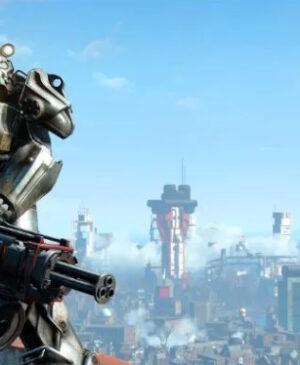TECH NEWS – In other words, is its evolution accelerating so fast that we are no longer able to fully understand and predict it?
OpenAI has unveiled its most powerful artificial intelligence-based large language model (LLM) ever, GPT-4 Turbo, with a “production-ready” version to be released in a few weeks, by early 2024 at the latest. The original GPT-4 was trained with information closed until September 2021, while the GPT-4 Turbo is built with more modern data, as it has information closed until April 2023.
It has two versions, one specialized in text analysis, the other capable of processing and interpreting both textual and image-based context. The former is now available via an API preview. The new AI model would be significantly cheaper for developers to run, with input costing as little as $0.01 per 1,000 tokens (a basic unit of text or code that an LLM uses to generate its response) versus $0.03 in the case of the vanilla GPT-4 model. In both cases, output would cost about $0.03 per 1,000 tokens. OpenAI’s latest offering will continue to support text-to-speech requests, image-based input, and image generation requests via DALL-E 3 integration.
GPT-4 Turbo is said to be able to handle highly complicated tasks in a single request, thanks to its much more extensive training. The biggest change relates to the LLM’s token context window, a measure of the richness or depth of input and output of a particular LLM. GPT-4 Turbo offers a context window that is about 4 times larger than GPT-4, capable of processing 128,000 tokens. For context, 1,000 tokens is roughly equivalent to 750 words. This means that OpenAI’s latest offering is capable of processing 96,000 words. Anthropic’s Claude 2 can currently only process 100,000 tokens.
Joseph Ayoub, founder of rug.ai and Diffusion, said on Twitter that GPT-4 Turbo is the biggest step toward the singularity of artificial intelligence: “Yesterday OpenAI released GPT-4 Turbo. This is the biggest step towards the singularity we’ve seen in our lifetime. AI singularity is the understanding that AI intelligence will surpass human intelligence. AI can already compute larger amounts of data more accurately than humans with such vast computing power, but intelligence is not the ability to compute large amounts of data. The definition of intelligence is broad, but my understanding of intelligence is the ability to rationally converge on the right answer. Being intelligent but not arriving at the right conclusions is not intelligence; being correct but not arriving at the answer rationally is not intelligence either.
So why is this OpenAI upgrade important? They have affordably increased the context their models can handle from 8k to 128k. All this means is that GPT-4 can now carry on a conversation while “remembering and processing” ~90,000 words before it gives you an answer. Context is one of the greatest limitations of intelligent computation. Without greater context, models are unable to keep track of larger data sets with more complex problems. This improvement means that you can now input huge data sets and get smarter answers. This is why human intelligence outperforms artificial intelligence. We can understand the broader context of data sets, the world, the problem over years of discovery and understanding. Unlike AI models, we have both short-term AND long-term memory, whereas models only have short-term memory. But with increasing context, a model’s cognitive ability increases many times over with long-term memory. This enhancement allows models to create THEIR OWN programs to solve tasks. This means that models can solve HARDER problems more efficiently on their own. In a hypothetical scenario, this breakthrough in context means that you could train a model on a large dataset of academic papers in a particular field and ask new, novel questions. And as a result, we’d get new, novel answers to problems that humans haven’t solved yet…
So if models can solve problems with more context (using more long-term memory) and can process data better than humans, they can solve harder problems that we can’t, and they’re smarter than us. The implications of this are far-reaching. I personally believe that several problems that humans face today will be solved by AI. From scientific discovery to longevity. With a broader context, AI can more intelligently converge on the right answer. These models are an extension of human intelligence. To that end, AI won’t replace us, but it will give us (who should you ask?) a superpower to some extent,” Ayoub wrote.
Is this the bright future?
Source: WCCFTech
















Leave a Reply